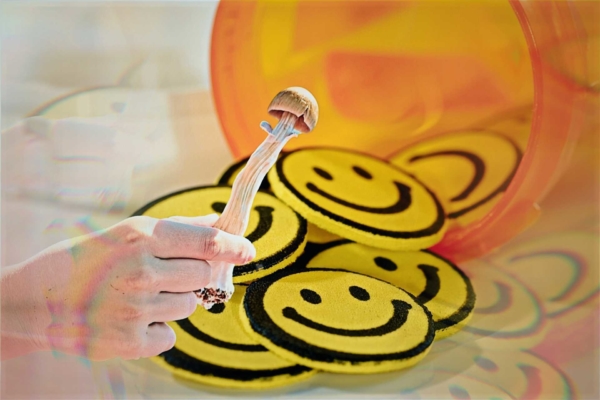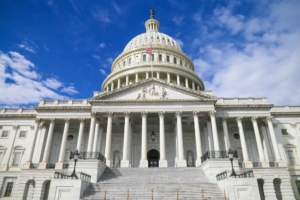
In a first-of-its-kind legal battle, an Australian doctor is suing for the right to treat his patient’s psychological trauma with MDMA.
Consultant Psychiatrist Dr. Eli Kotler has pursued legal action after the Victorian Department of Health rejected an application for him to treat an unnamed female patient with MDMA — a synthetic hallucinogen with promising therapeutic applications currently classified as a prohibited drug in Australia.
A psychiatrist specializing in addictions and trauma, Dr. Kotler challenged the state’s decision in the Moorabbin Magistrates’ Court last week. Dr. Kotler’s lawyer Greg Barns SC told the magistrate: “The patient is quite unwell and has a range of mental health issues where it’s believed that MDMA would be efficacious to use therapeutically,” the ABC reports.
However, the matter has been adjourned until next year. Due to its unprecedented nature, the outcome of this case could be significant.
According to the ABC, the barrister representing Victoria’s Department of Health, Kylie Evans, told the court: “As far as we’re aware, this is the first such case that will be heard in a court in Australia, seeking permission from the state to treat a patient with MDMA.”
In recent years, there has been a growing interest in using psychedelics such as MDMA to treat a host of mental health disorders, including trauma, as clinical trials evaluating these drugs have returned promising results.
A groundbreaking Phase 3 study sponsored by the Multidisciplinary Association for Psychedelic Studies published earlier this year found MDMA-assisted therapy is an effective treatment for severe and chronic post-traumatic stress disorder (PTSD). In fact, two-thirds of participants experienced such a dramatic reduction in their symptoms that they no longer qualified for a PTSD diagnosis.
Another 2021 study found that psychedelics can alleviate the symptoms of childhood trauma, with further research demonstrating that MDMA can help a person heal after sexual trauma.
Ongoing research is also evaluating MDMA’s ability to treat other mental health conditions such as addiction and Hypoactive Sexual Desire Disorder.
Getting to the Root of Trauma
Unfortunately, Dr. Kotler was unable to speak with Psychedelic Spotlight about his case at this time because the matter was already before the court. But in a blog post published on charity Mind Medicine Australia’s website in March, he described Victoria’s approach to treating mental health illnesses as stagnant.
“People will continue to kill themselves, and my patient will continue to suffer in silence until the Victorian Government allows me to access a new treatment which may finally bring peace to a troubled mind,” he said.
“Traumatized when young, [my patient] has suffered from every diagnosis a psychiatrist’s finger can point at. She has had every treatment a medical guideline can fathom. Yet, her trauma remains in place because no one has been able to reach it. Treatments like MDMA-assisted therapy appear to touch the root of the trauma, allowing individuals to process the unintegrated parts of their minds, and offer the chance of real healing.”
Dr. Kotler added in the post that one major problem with treating mental ill-health is the current tendency to view these disorders in a biologically reductive way. “In other words, mental illnesses are both understood and treated primarily as biological diseases,” he explained.
“The events which lie at the root of illnesses such as addictions and depression are those which overwhelm the mind’s ability to process and integrate. But rather than seeing these conditions as the result of trauma (which they are) and treating the underlying emotional issues (which would help), our society mistakes the symptoms (anxiety and depression) for the disease itself. We treat depression as depression and addiction as addiction, and all the while, we are missing the forest for the trees.”
Despite Australia’s growing deadly mental health crisis, Dr. Kotler said the nation’s approach to treating these conditions has not changed.
“The real disease is the high prevalence of trauma, alienation, and neglect in our society,” he said in the blog post. “After all, it is these conditions which twist and distort the mind into the contortions which fill the latest category of mental illnesses. All the while, we suffer in our own blindness.”
Australia Considering Rescheduling of MDMA to a Controlled Drug
Dr. Kotler’s case comes as the country’s medicines regulator, the Therapeutic Goods Administration (TGA,) was already considering downgrading MDMA and psilocybin — the psychoactive prodrug found in “magic mushrooms” — from Schedule 9 (prohibited drugs) to Schedule 8 (controlled drugs).
If MDMA is downgraded, Dr. Kotler’s appeal will likely no longer need to go ahead because, as a controlled drug, it would be able to be used for therapeutic purposes under strict conditions.
As part of its decision-making process, the TGA called together an Independent Expert Panel to evaluate the therapeutic value, benefits, and risks of MDMA and psilocybin for the treatment of mental, behavioral, or developmental disorders. In a report published in October, the panel concluded its findings by stating that: “MDMA and psilocybin may show promise in highly selected populations but only where these medicines are administered in closely clinically supervised settings and with intensive professional support.”
The report went before the TGA’s Advisory Committee of Medicines Scheduling at a November 3 meeting. However, a final decision on the rescheduling bid is not expected to be published until the first week of December.





